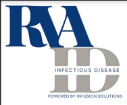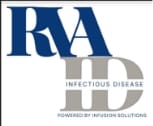Management of Clostridioides difficile Infections by an Infectious Diseases Physician
Clostridioides difficile (C. difficile) infections (CDI) are a major concern in healthcare settings, often leading to severe diarrhea and colitis, and can be challenging to manage due to their recurrence and potential for serious complications. Infectious diseases (ID) physicians are integral to managing CDI, employing their specialized knowledge to ensure effective treatment and minimize the risk of complications.
Diagnosis and Initial Management
The ID physician’s role begins with accurate diagnosis, which typically involves stool tests to detect C. difficile toxins or the presence of the bacteria's DNA. The physician assesses the patient's clinical presentation, history of recent antibiotic use, and underlying health conditions. This thorough evaluation helps in confirming CDI and distinguishing it from other potential causes of gastrointestinal symptoms.
Treatment and Optimization
For initial treatment, ID physicians follow established guidelines recommending oral antibiotics such as vancomycin or fidaxomicin, depending on the severity of the infection. They are adept at tailoring treatment based on individual patient factors, including potential drug interactions and underlying health issues. In cases of recurrent CDI, which affects a significant proportion of patients, ID specialists may recommend additional strategies such as extended courses of antibiotics, fecal microbiota transplantation (FMT), or novel therapies under investigation.
Prevention and Follow-Up
Prevention of CDI recurrence is a critical focus. ID physicians provide guidance on optimizing antibiotic use, improving infection control practices, and managing comorbid conditions that may predispose patients to CDI. They also play a key role in follow-up care, monitoring patient progress and adjusting treatment plans as needed to ensure resolution and prevent relapse.
In summary, ID physicians are crucial in managing CDI through accurate diagnosis, effective treatment, and strategic prevention, improving outcomes and reducing the burden of this challenging infection.


